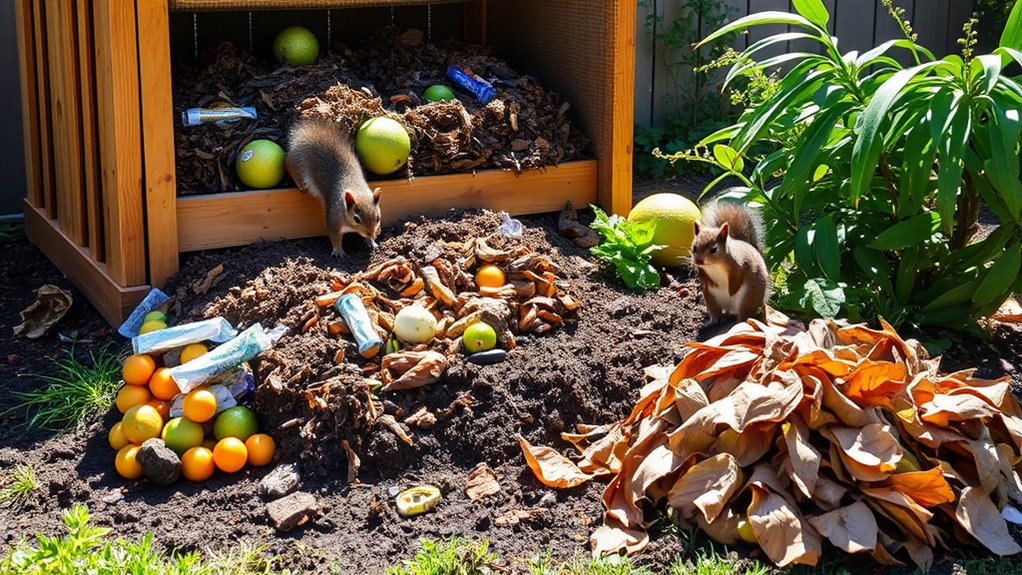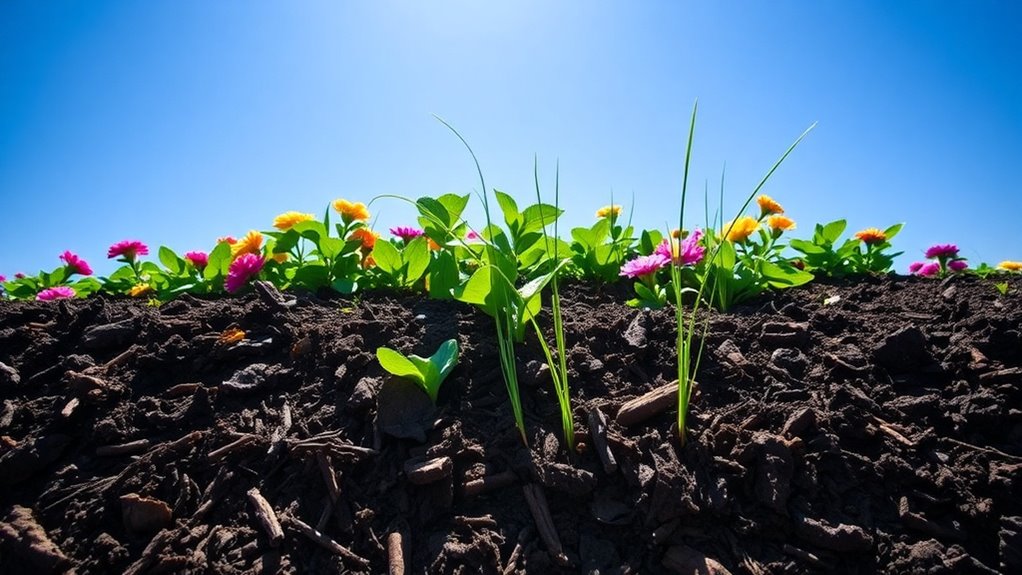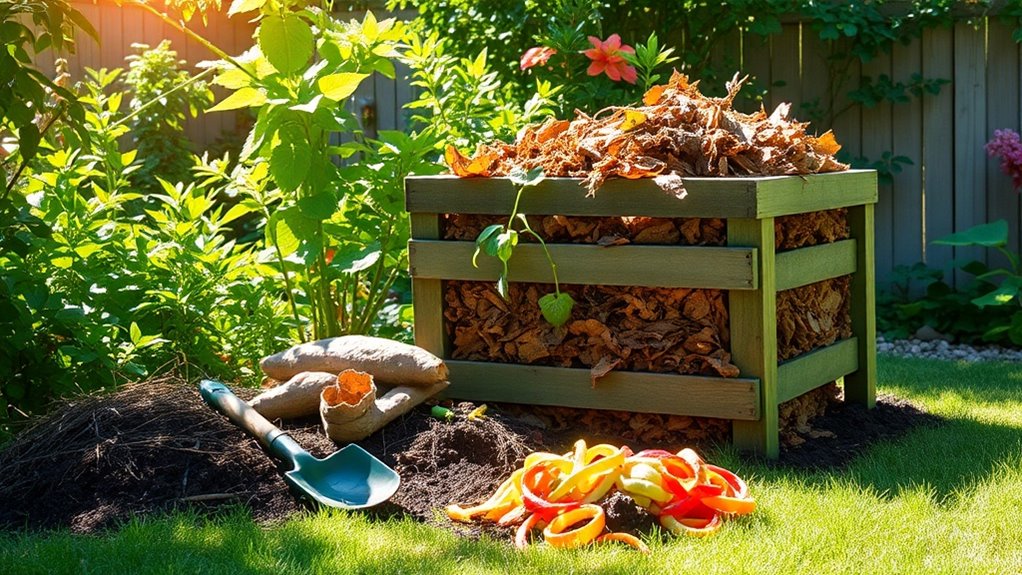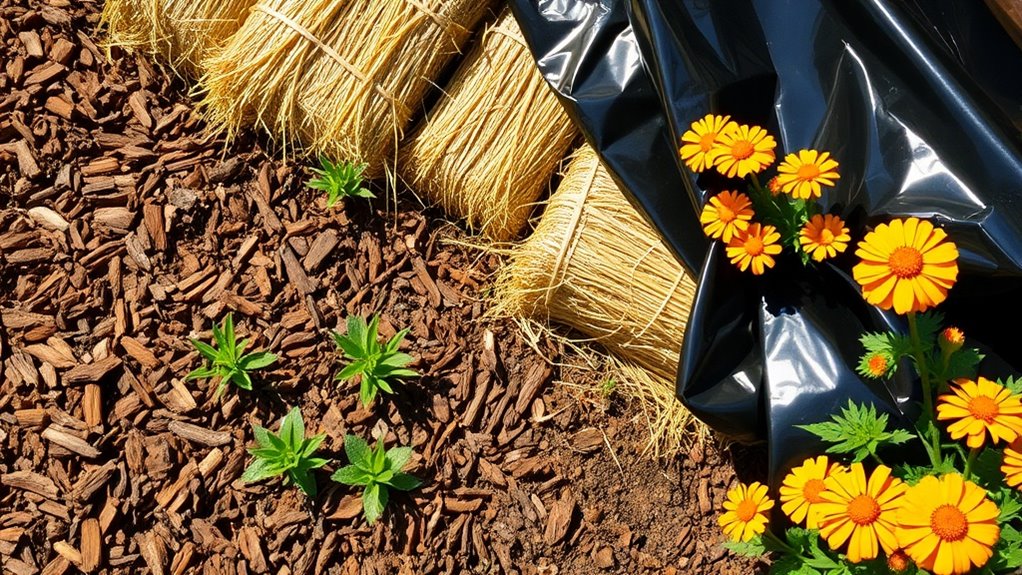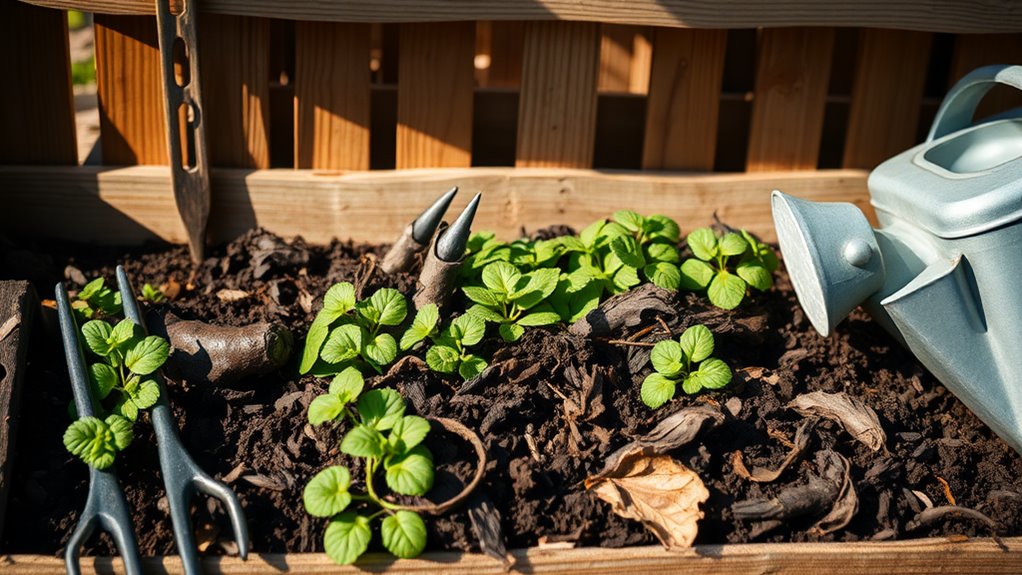I Made These 5 Composting Mistakes – Learn From Me!
Composting can be tricky, and I’ve made my fair share of mistakes! Ignoring the carbon-to-nitrogen ratio can lead to a smelly mess, while adding meat or dairy attracts pests. Don’t forget to aerate your pile—compacting it will slow down decomposition. Overwatering creates a soggy mess, and extreme weather can hinder your efforts. If you want to make richer compost without the hassle, you’ll want to check out some key tips for success!
Ignoring the Carbon-to-Nitrogen Ratio
Have you ever wondered why your compost pile isn’t breaking down as quickly as you’d hoped?
One common mistake is ignoring the carbon-to-nitrogen ratio.
For ideal decomposition, aim for a balanced mix—about 30 parts carbon to 1 part nitrogen.
Carbon-rich materials like dry leaves and cardboard provide energy, while nitrogen-rich items like kitchen scraps fuel microbial activity.
To speed up the process, layer these materials thoughtfully.
Remember, adding too much carbon can slow decomposition, while excess nitrogen may create an unpleasant odor.
Additionally, understanding the importance of balance in your composting materials can greatly enhance efficiency.
Keep these composting tips in mind, and you’ll enjoy a thriving, efficient compost pile in no time!
Adding Inappropriate Materials
What materials are you tossing into your compost pile?
It’s essential to avoid adding inappropriate items that can harm your composting efforts.
Here are four materials you should steer clear of:
- Meat and dairy – These can attract pests and create odors.
- Oils and fats – They disrupt the microbial balance and slow down decomposition.
- Diseased plants – These can spread pathogens to your compost and garden.
- Non-biodegradable items – Plastics and synthetic materials won’t break down and contaminate your compost.
Stick to appropriate organic materials, and you’ll see healthier compost and a thriving garden! Additionally, understanding the microbial balance is crucial for effective decomposition and healthy soil.
Neglecting Aeration
While it might seem like a minor detail, neglecting aeration in your compost pile can seriously hinder its effectiveness. Proper airflow is essential for the breakdown of organic materials.
When you skip aerating, you risk creating a compacted, anaerobic environment that stinks and slows down decomposition.
To keep things moving, turn your pile every couple of weeks with a pitchfork or shovel. This simple act introduces oxygen, speeds up the composting process, and promotes beneficial microorganisms. Additionally, incorporating low-effort composting methods can further enhance your composting experience without adding to your busy schedule.
Overwatering the Pile
How do you know if you’re overwatering your compost pile?
Too much moisture can hinder decomposition and create a smelly mess.
Look for these signs:
- Soggy Texture: Your pile feels like a wet sponge.
- Pungent Odor: You notice a strong, unpleasant smell, similar to rotten eggs.
- Pooling Water: Water collects at the bottom, instead of draining.
- Slow Decomposition: You see little progress in breaking down materials.
To maintain balance, aim for a moist but not drenched pile.
If it’s too wet, add dry materials like leaves or cardboard to soak up excess moisture. Additionally, understanding the importance of nutrient-rich soil can help you create a successful composting routine.
Composting During Extreme Weather Conditions
During extreme weather conditions, managing your compost pile can be a challenge, but it’s essential for maintaining healthy decomposition.
In heavy rain, cover your pile to prevent it from becoming waterlogged.
Conversely, during heat waves, add moisture to keep it damp but not soggy.
If it’s freezing, insulate your compost with straw or blankets to maintain warmth.
Regularly turn the pile to aerate it and promote decomposition, regardless of the weather.
Finally, monitor the balance of greens and browns; adjust as needed to guarantee your compost thrives, no matter the climate challenges you face. Additionally, consider making simple ingredient swaps to further enhance nutrient content and speed up the decomposition process.
Happy composting!

